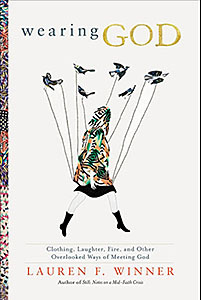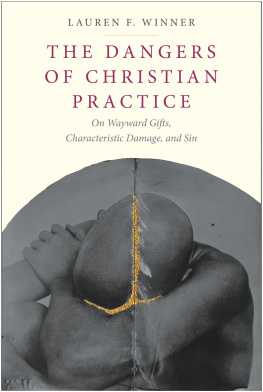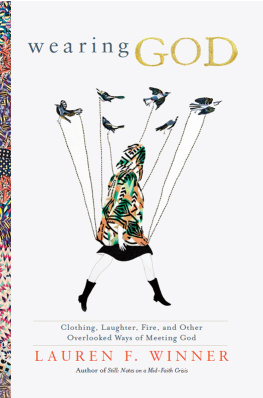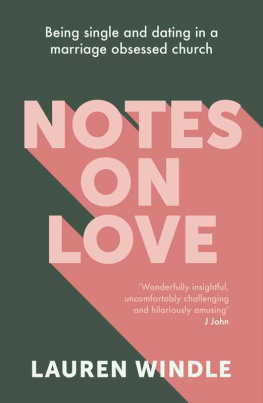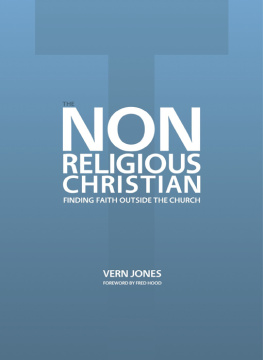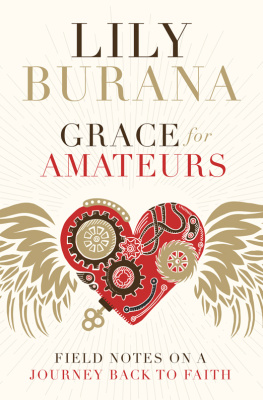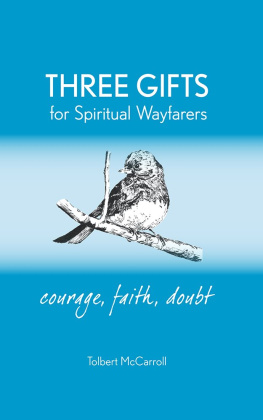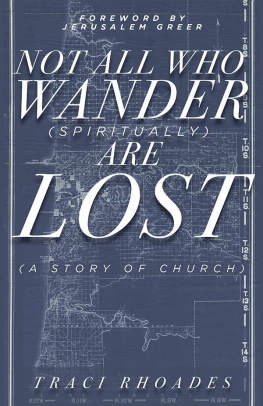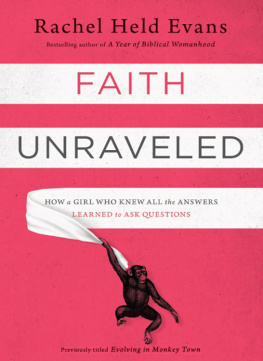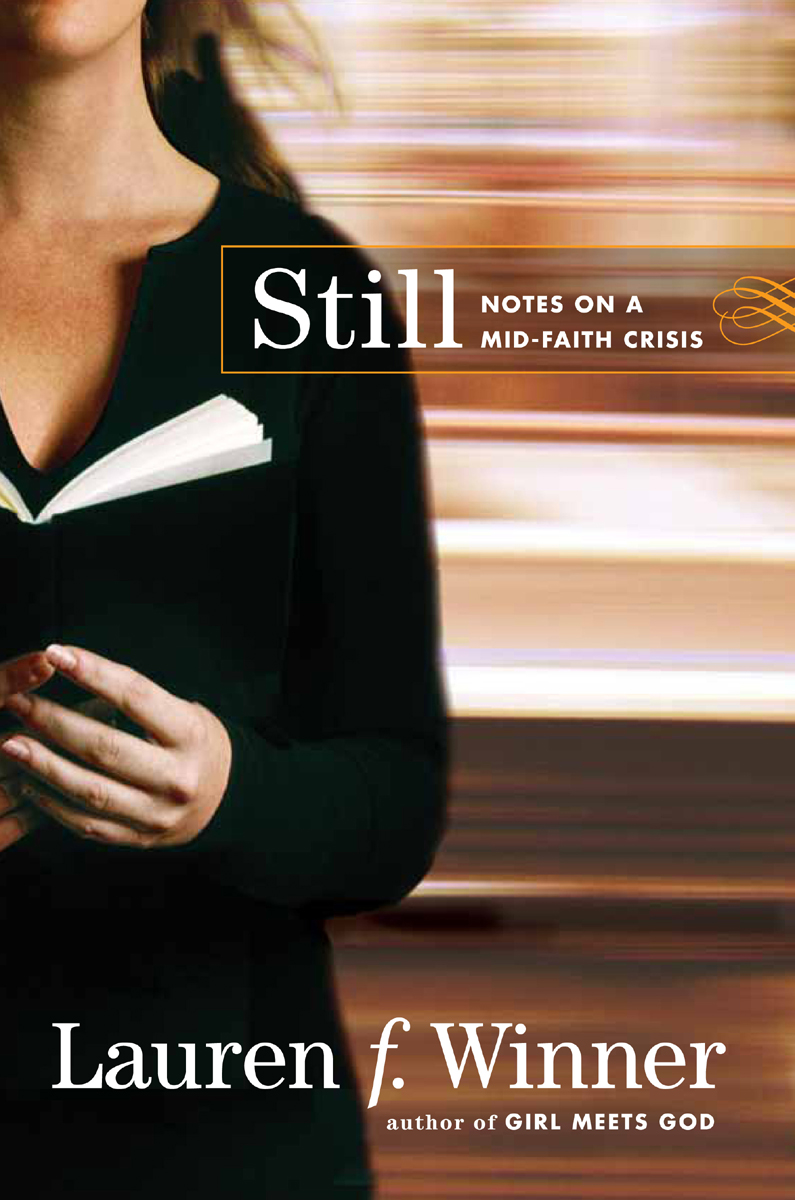
This book is dedicated to Lil Copan,
with thankfulness for her friendship,
her wisdom, and her abiding
He wonders if hes lying. If he is, he is hung
in the middle of nowhere, and the thought hollows him.
John Updike
Contents
Jane Smileys novel Horse Heaven was published in 2000, about three years after I left the Judaism in which I had grown up and was baptized in the Anglican church. Smiley is quite possibly my favorite living American novelistI read her novella The Age of Grief at least once annuallyand I snatched up Horse Heaven as soon as it hit the stands. Its a sprawling comic novel about horse racing, a subculture I have little interest in, and it is not my favorite of the Smiley oeuvre: I prefer her quiet, finely grained family stories Ordinary Love and Good Will, Barn Blind, At Paradise Gate . But one small section of Horse Heaven spoke to me with a force I had mostly felt only when reading liturgy or poetry or epitaphs. Here, Smiley is writing about a horse trainer named Buddy Crawford. He gets born again and hes all fired up and then one night he is praying and he sits down on the bed and he looks up to the full moon, in whose region he imagines Jesus to be, and then he begins to talk to his Lord and Savior. Okay. Heres the deal, Buddy Crawford says. I thought I was saved. That was what was advertised. I would accept you as my personal savior, and there you were. And, you know, I felt it, too. I felt saved and everything.... But I find out all the time that Ive got to keep getting saved. Am I saved? Am I not saved? What do I do now?... Are you talking to me? Are you not talking to me? Am I good? Am I a sinner? Still a sinner? And then he bursts into tears.
His wife comes into the room, gets undressed, and asks Buddy what has made him cry. When the Lord came into me, Buddy tells her, it was such a good feeling, I thought, Well, I can do anything because of this feeling, but then there was all this stuff to do and to think about, and I dont remember the feeling all that well.
It seemed to me that I was reading my own tea leaves when I read those Jane Smiley words. I had not yet had any such experience, any shaking failure of memory, any overpowering uncertainty about whether anything I thought I believed about God was actually true. I was still secure in the grip of certainties, many of them: that Jesus was real, that he was God, that he had come to me in a dream; that God was intimately involved with the particulars of my life; that my days would and should revolve around the institution where people went to meet and get to know and worship this Jesus, that is, the church; that God had saved me; that God was saving me still.
But lying there reading Jane Smileys fiction on the hand-me-down futon in my small grad-school garret in Manhattans Morningside HeightsI recall that I was drinking cherry-flavored sparkling water as I read, that the water was room temperature but the bubbles felt cold on my throatI knew that one day, I would sit by Buddy Crawfords side.
This is a book about what happens when you come to your Buddy Crawford moment, and then what happens after that.
I have never used Crawfords language of the Lord coming into me. If you asked me how I came to Christianity, I would tell you about my childhoodabout growing up with a Jewish father and a lapsed Baptist mother who had agreed to raise my sister and me as Jews; about how I loved Judaism, the synagogue, the Jewish meditation group I attended every month. I would tell you about baking challah and singing songs by Debbie Friedman and how I loved each letter of the Hebrew alphabet. And then I would tell you that when I was in college, unexpected things happened: I had this dream about Jesus rescuing me from a kidnapping; and I obsessively read Jan Karons Mitford novels, whose protagonist is an Episcopal priest and whose many characters are always quoting the Bible, sensing Jesus nearness, trusting him; and I bought a Book of Common Prayer and started using it to guide my conversations with God; and then finally, I graduated from college and moved to England, and there I was baptized. I would tell you how unexpected this was, how I never expected Christianitybut also how absorbed I became in this new faith, how wholehearted my embrace of it. I was just about the most enthusiastic new Christian you had ever metin church all the time, reading about church things when I was not at church, wanting nothing more than prayer, Communion, hymns.
I know there must have been feelings in the midst of the kidnapping dream and the prayer book purchase. I suspect they were feelings of closeness, maybe of rest, of an intense knowing and being known by Godbut Im just guessing. Like Buddy Crawford, I dont remember the feelings very well. Actually, I dont remember them at all.
Am I saved? Am I not saved? Are you talking to me? Are you not talking to me? Am I a sinner? Still a sinner? What do I do now?
What happens in conversionat least, what happened in mineis that a person concludes that the truth is in Jesus. That conclusion will carry you to baptism; it will carry you to church, or back to church, or to your knees. But then where does it take you? Or, more precisely, how does it take you? How do you continue to allow the truth that is in Jesus to be your rudder?
The kidnapping dream and the prayer book and the baptism made a path; they were my glory road, and I thought that road would carry me forever. I didnt anticipate that, some years in, it would carry me to a blank wall, and at that wall a series of questions: do I just stand here staring at this wall? Do I go over? Under? Do I turn around and retrace my steps?
The enthusiasms of my conversion have worn off. For whole stretches since the dream, since the baptism, my belief has faltered, my sense of Gods closeness has grown strained, my efforts at living in accord with what I take to be the call of the gospel have come undone.
And yet in those same moments of strained belief, of not knowing where or if God is, it has also seemed that the Christian story keeps explaining who and where I am, better than any other story I know. On the days when I think I have a fighting chance at redemption, at change, I understand it to be these words and these rituals and these people who will change me. Some days I am not sure if my faith is riddled with doubt or whether, graciously, my doubt is riddled with faith. And yet I continue to live in a world the way a religious person lives in the world; I keep living in a world that I know to be enchanted, and not left alone. I doubt; I am uncertain; I am restless, prone to wander. And yet glimmers of holy keep interrupting my gaze.
In the American church, we have a long tradition of telling spiritual stories that culminate in conversion, in the narrators joining the church, getting dunked in the waters of baptism, getting saved. But what Buddy Crawford knows is that the baptism, the conversion, is just the beginning, and what follows is a middle, and the middle may be long, and it may have little to do with whatever it was that got you to the font.
This is a book about entering the middle, about being in the middle of the spiritual life.
I was carried to the middle of my spiritual life by two particular events: my mother died, and I got married, and the marriage was an unhappy one. Had you asked me beforebefore my mother got sick, before I found myself to be a person thinking about divorceI would have told you that these were precisely the circumstances in which one would be glad for religious faith. Faith, after all, is supposed to sustain you through hard timesand Im sure for many people faith does just that. But it wasnt so for me. In my case, as everything else was dying, my faith seemed to die, too. God had been there. God had been alive to me. And then, it seemed, nothing was alivenot even God.
Next page
